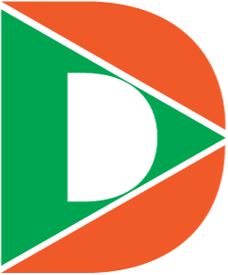Understanding How Fleet Management Benefits the FMCG Industry?
When it comes to FMCG( Fast-Moving Consumer Goods), where products fly off shelves, timely deliveries are very crucial. This is where an effective fleet management system that benefits the FMCG industry comes into play and often changes the game.
This piece of writing sets the stage for how fleet management technology revolutionizes FMCG operations. We’ll delve into how fleet management benefits this industry, focusing on aspects like on-time deliveries, cost reduction, and maintaining product quality.
So without further ado, let’s get into this piece of writing. Before we have a look at how fleet management systems benefit the FMCG industry, let’s have a look at what fleet management is.
What is Fleet Management?
Fleet management refers to the proper management of a company’s fleet, or “fleet.”. This typically consists of tasks and responsibilities aimed at improving the efficiency, safety, and cost-effectiveness of the fleets.
Fleet management is commonly used in various industries like transportation, logistics, cargo handling, delivery services, and any other business that relies on a significant number of vehicles for its operations.
Components of Fleet Management
Fuel Consumption: Monitoring and controlling fuel consumption to control costs and reduce environmental impact. This may include fuel-efficient technologies, road improvements, and the promotion of fuel-efficient driving.
Driver Management: Ensure drivers are properly trained, licensed, and follow safe driving practices. Monitoring driver behavior, tracking performance, and addressing issues such as acceleration or hard braking are common areas of driver management.
Route Optimization: Using technology to design and optimize roads for efficiency, reducing fuel consumption and delivery times. GPS tracking and route planning software are often used for this purpose.
Telematics: Technologies such as GPS, sensors, and communications systems for collecting and transmitting real-time vehicle data. This information can include location, speed, fuel consumption, and other relevant points for analysis and decision-making.
Understanding How Fleet Management Benefits the FMCG Industry?
Fleet management plays a crucial role in the Fast-Moving Consumer Goods (FMCG) industry, providing several benefits that contribute to operational efficiency, cost savings, and overall business success. Below, we have mentioned the key benefits of fleet management in the FMCG industry.
1) Efficient Route Planning
Fleet management systems help in optimizing delivery routes, ensuring that vehicles take up the most efficient routes to reach multiple destinations. This further helps in minimizing travel time, reducing fuel consumption, and enhancing overall delivery speeds.
2) Real-Time Tracking and Visibility
Technologies like GPS and video telematics allow for real-time tracking of vehicles. This further provides visibility into their location, status, and performance. With the help of real-time tracking and visibility, companies can monitor delivery schedules, prevent delays, and address issues promptly.
3) Fuel Efficiency
Fleet monitoring systems can monitor and analyze driving habits, resulting in a better fuel management system. This includes scanning speed, uptime, and other factors that affect fuel efficiency. By promoting healthy driving, FMCG companies can reduce fuel costs and environmental impact.
4) Maintenance Management
Predictive maintenance or pre-maintenance alerts in a fleet management system help predict when vehicles need servicing, reduce the possibility of damage to vehicles, and reduce downtime This approach ensures that the vehicles remain in optimal condition, increasing overall reliability.
5) Cost Reduction
By optimizing routes, improving fuel efficiency, and reducing vehicle retirement through preventive maintenance, fleet management contributes to significant cost savings This is important, especially in the FMCG industry, which requires careful cost control.
6) Compliance and Safety
Fleet management systems help FMCG companies ensure compliance with regulatory requirements and safety standards. This includes monitoring driver behavior, enforcing speed limits, and observing rest periods, to reduce the risk of accidents and legal issues.
7) Data-driven Decision Making
Fleet management systems generate valuable data and analytics, enabling FMCG companies to make informed decisions. This includes route optimization, resource allocation, and overall operational improvements based on historical performance data.
Final Words
To conclude, it would never be wrong to say that fleet management software plays a crucial role in the FMCG industry. The software helps contribute to the industry by bringing efficiency, saving costs, and improving customer satisfaction by optimizing logistics and enhancing the performance of the vehicle. Together, these benefits collectively contribute to a competitive advantage in a fast-paced and demanding market.
Fleet management solutions provide various benefits, like efficient route planning, real-time tracking and visibility, cost reduction, compliance and safety, and data-driven decision-making.
How TrackoBit Can Help You
Well, if you are into the FMCG industry and planning to incorporate fleet management software, TrackoBit can be a great bet as it provides end-to-end optimization of food and beverage fleet tracking. Its comprehensive solutions provide solutions that help in temperature monitoring, route, fuel, safety, and a lot more.
All in all, get a live dashboard, trip management, sensor compatibility, fuel monitoring, route deviation alerts, and more.

As a DIGITALTECHSIDE author, the majority of our articles have been focused on technology, blogging, business, lifestyle, social media, web design and development, e-commerce, money, health, education, entertainment, SEO, travel, and sports.
Contact us at digitaltechside@gmail.com if you have questions of anything.




